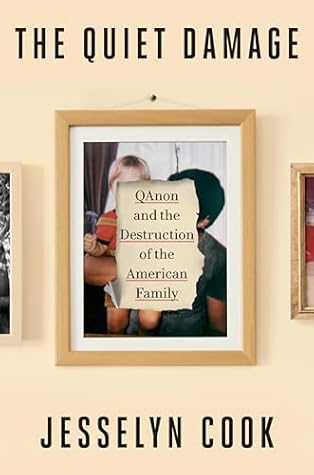Religious belief was significantly positively correlated with conspiracy theory belief, attributed by experts to the service of common psychological needs (certainty, purpose, community) and shared underlying elements (grand narratives, a righteous mission, conviction in the unseen). And while believers of QAnon theories represented only a small minority of Christians overall, they accounted for nearly one in four white Evangelicals; the majority, also, were supporters of Christian nationalism.
Welcome back. Just a moment while we sign you in to your Goodreads account.


